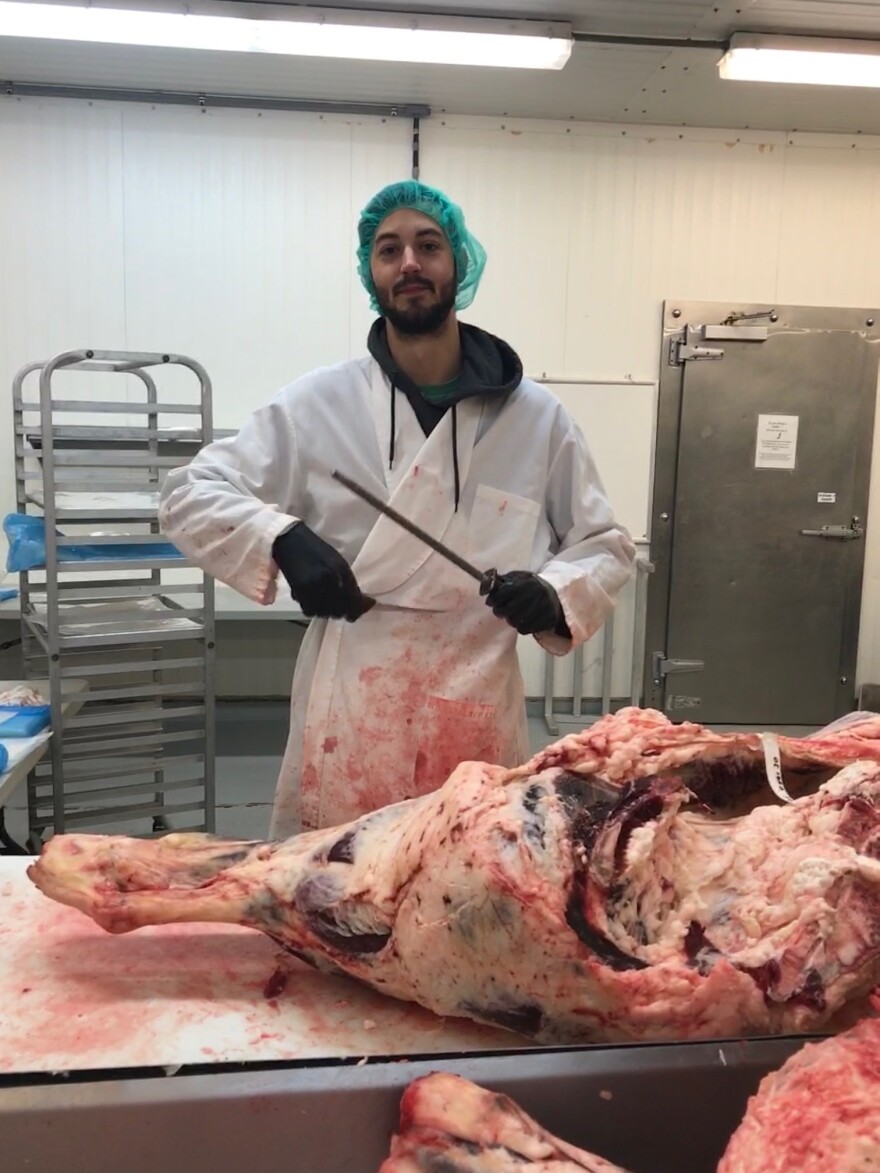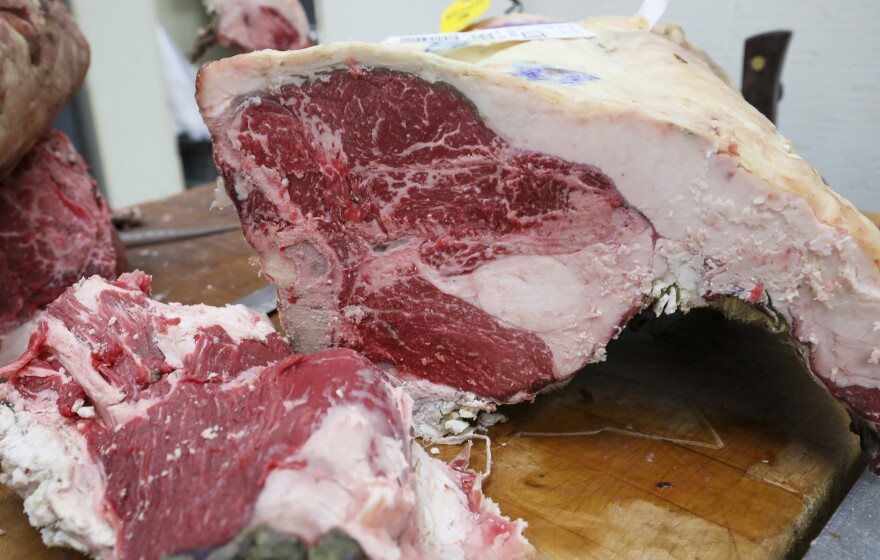Butcher Trey Williams got his first taste of meat processing while in high school. “Everybody in the store always talked about how the meat department guys and women were the ones that made the most money," he remembered. "I thought, ‘Oh, maybe I should try that.’ That’s really what got me into it in the first place was the lure of a larger paycheck.”
Seven years ago, Williams was hired as a meat processor at Ayrshire Farms in Fauquier County, a certified humane organic farm that raises and processes beef, pork, and poultry. The work was physically taxing but satisfying and he liked being part of a more environmentally sound, kinder food system.

He also loved the work. “And that gave me the drive and the determination to keep coming back, even though my hands and feet were sore, my back was sore, I was exhausted, even though all those things were happening . . . I knew I loved it and was good at it.”
Now he’s teaching what he knows to others through a 12-week program designed by the Piedmont Environmental Council and the Chicago-based Range Academy. Classes will be held twice a week, with a hands-on meat cutting lab each Saturday.
Click here for the RAPP Center Meat Cutting Program
Though the course steers away from teaching how to actually slaughter animals, Williams said the lessons learned will be both pedagogical and physical. And he’s looking for a few good students. “The people that I’m looking for are those ready to work, ones that don’t mind using their body in a physical way to do their job … [and] people that aren’t going to be afraid of that kind of work and learn a skills that’s been around for thousands of years but it’s disappearing. People interested in doing something that not everybody can do, and willing to put in the work to do it.”
In addition to meat-cutting and grading techniques, students will also learn animal physiology, cooking skills, handsaw and knife safety, and customer service.
“We have to wear a lot of hats," Williams said. "That’s something that a butcher will learn, yes, they need to know how to cut meat, but they also need to know how to cook it as well, and how to communicate with a customer, and be good at customer service. It’s something that you have to have a lot of different things you’re good or at least are willing to do in order to succeed in your job. You’re going to be learning a lot of things that don’t really seem like they go with meat cutting, but they do; embrace that.”
Travis Hamilton, a 42-year-old father of two from Front Royal, has enrolled. He’s worked around meat for the last dozen years as a packer and delivery driver and likes the job security.
“It’s always comfortable to know that you’ll have the skills to go out and get a job, you know, if something happened with the current job you’re in, you’re not always scrambling around. There’s opportunities everywhere for meat processors and cutters, meat plant managers, things like that. You can make a good living at it too," Hamilton said. "So that’s what keeps me in it, and makes me want to further my skills and take the class and learn as much as I can about the business.”
He also feels good about the prospect of serving sustainable farms in Virginia. “One of my main things is that I like to know where the stuff comes that I’m eating, how it’s been taken care of, and raised, and all that. That’s one thing that interests me; farm to table type of thing.”
And there’s something else that draws him to this line of work.
“I like to eat," he joked. "So yeah, and my favorite thing to eat is steak and beef, so learning what the difference is between a choice or a higher graded beef, that is very interesting too. And you can tell a taste difference.”
Finally, the profession is lucrative. With a high school diploma or GED, meat cutters in Virginia can earn up to $50,000 a year to start. The program, which costs students $900, begins in early November in Rappahannock County.
This report, provided by Virginia Public Radio, was made possible with support from the Virginia Education Association.


